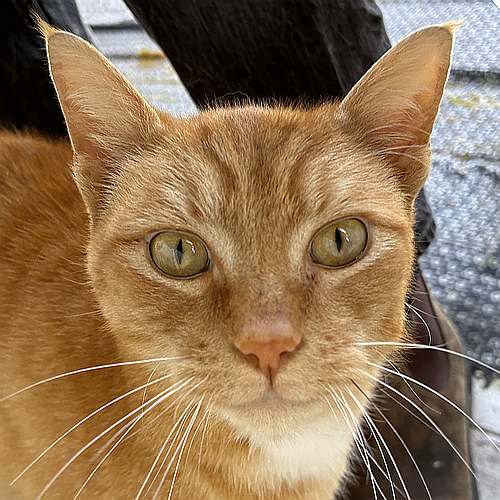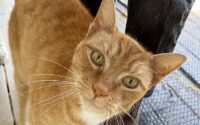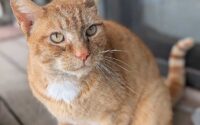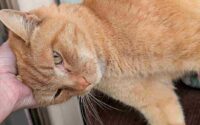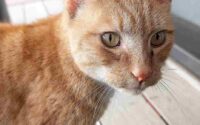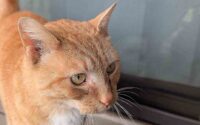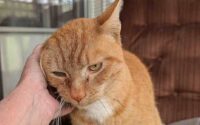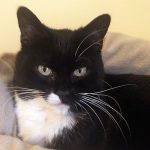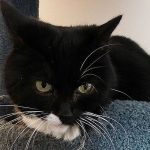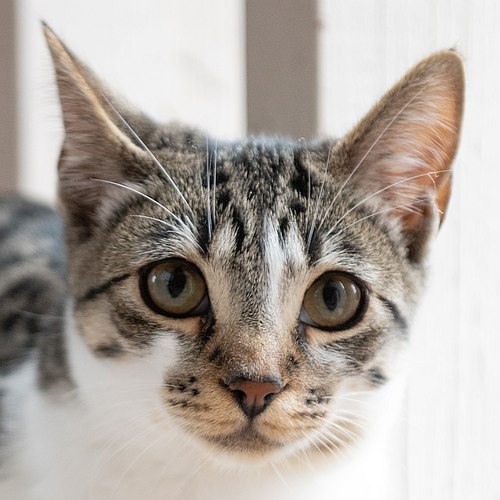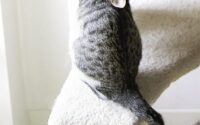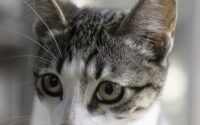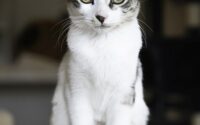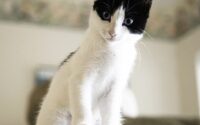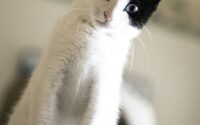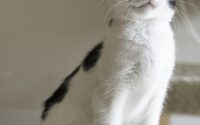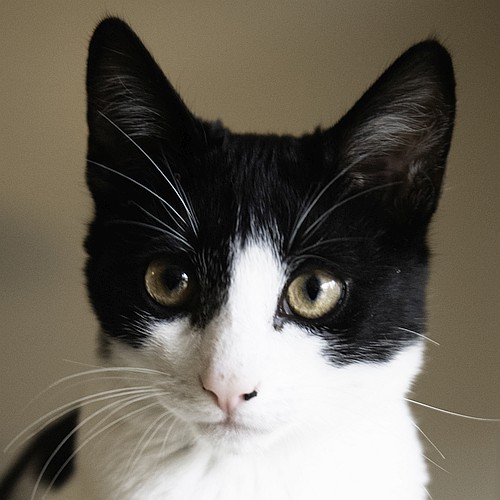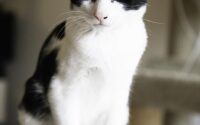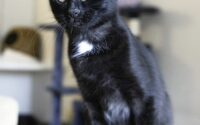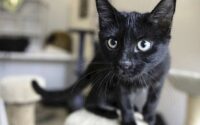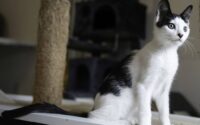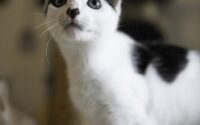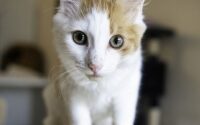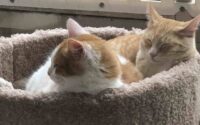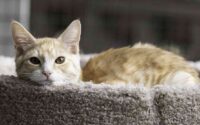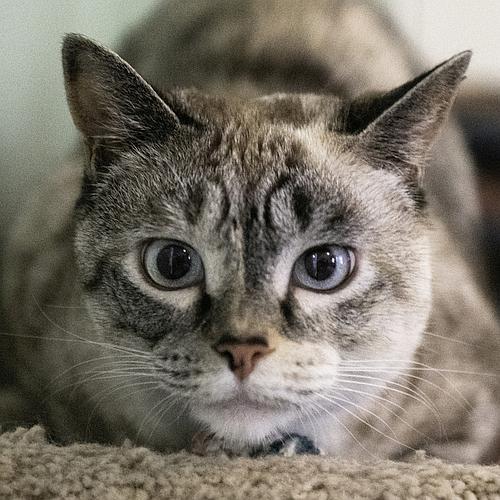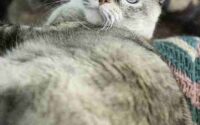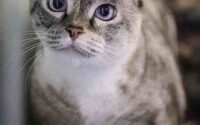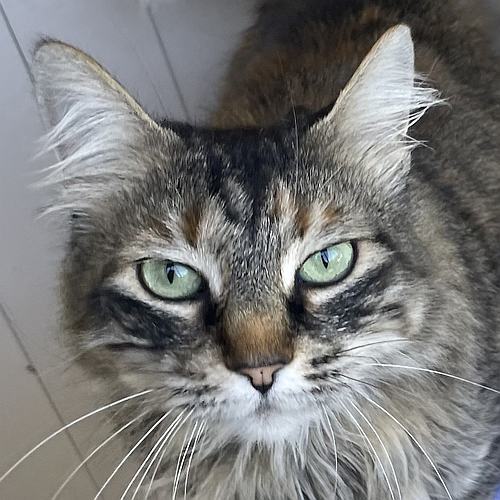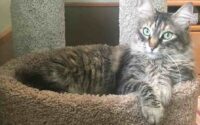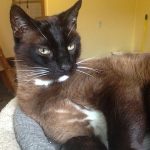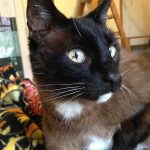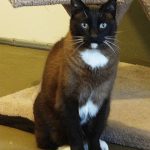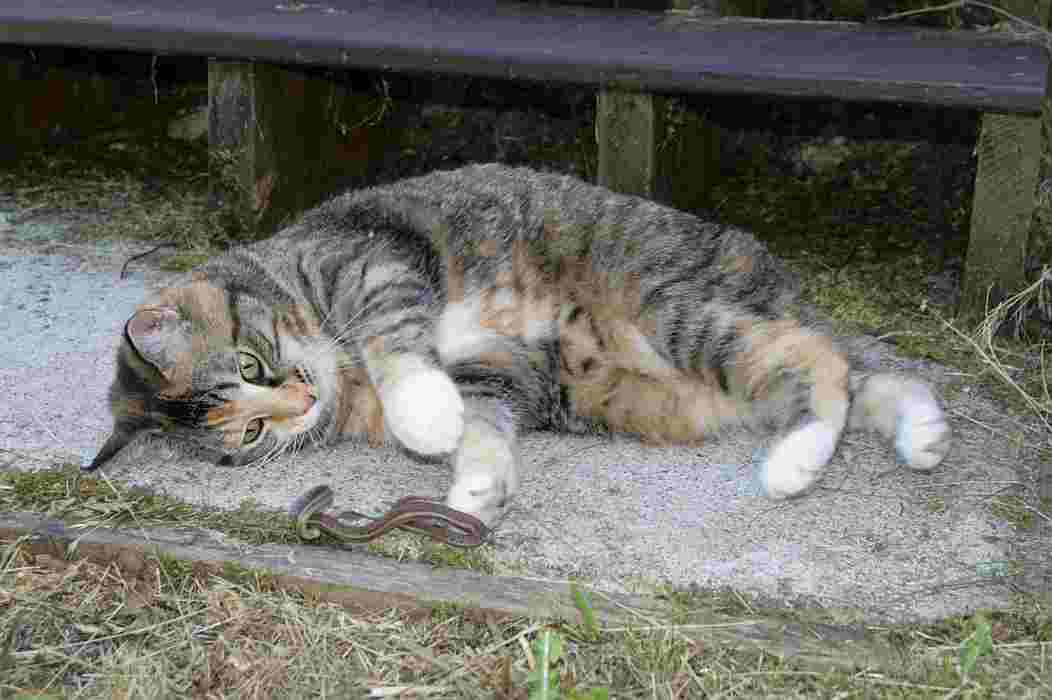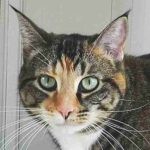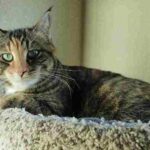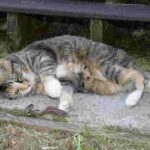FREQUENTLY ASKED QUESTIONS
PFOA has companion pets of all ages for adoption. All of our animals have been health checked by a veterinarian, vaccinated and spayed or neutered prior to adoption. We screen applicants to ensure the right cat or kitten is a good match for the home it deserves. The our adoption fee doesn’t even begin to cover the costs incurred in caring for any animal when you add up the veterinarian care, vaccinations, spay/neutering, food, cat litter and overhead to keep the lights and heat on at our shelter, Safe Haven. In addition, a reasonable investment in a pet is another indication of a pet owner’s ability to support the needs of that pet into the future. At the same time, we continue to strive to keep the fee as low as possible to make adoptions affordable for our community. Yes, we are! We are limited by county regulations to a maximum of 65 cats and kittens at any one time at Safe Haven. However, we have about another 50 cats, kittens and/or dogs in foster care with our hard-working volunteer foster “parents.” It is painful for us to have to turn away animals in need, which is one reason we have an aggressive spay/neuter and TNR program in our county. We would never euthanize animals to make room for others, but it’s possible – although it is rare – to have an animal euthanized if it is clearly suffering from a terminal illness or injury. Safe Haven is located between Sequim and Port Angeles, Washington, at 257509 Highway 101. Click here for a map of our location. Please note that it is against the law to abandon animals (RCW 16.52.207) and is considered animal cruelty in the second degree. Animals may not be dropped off at Safe Haven. Please call (360) 452-0414 for more information. Barker House, which is located east of Sequim, houses some of our special needs cats needing more frequent medications and care. In addition to adoptions and spay/neuter programs, Peninsula Friends of Animals offers pet food for pets of low-income community members. Our Pet Food Bank typically distributes 8,000-9,000 pounds of dry and 450-650 cans of donated pet food to needy pet households, along with over 1,500-2,000 pounds of cat litter. We also offer behavioral advice by telephone. Safe Haven is a renovated, 5,000-square-foot home on 34 acres of rural land between Sequim and Port Angeles. The rooms that house our cats and kittens are large, bright and airy with windows and outdoor access to fully enclosed patios where they can romp or sleep in fresh air and sunshine. The cats lounge on furniture and sleep in cat beds scattered throughout the rooms. Kittens have their own rooms. They all climb on cat trees, play with toys and have daily interaction with volunteers who groom and pet them. There may be times when a large cage is needed temporarily to:
Peninsula Friends of Animals is a non-profit, 501(c)3 organization and takes NO tax dollars. It is funded through public donations, fundraising and occasional grants. Our most consistent fundraising activity is the manufacture and sale of our world-famous potholders, completely staffed by volunteers. Most of the shelter work is performed by volunteers who love cats and kittens and who believe in the mission of caring for and helping the most helpless creatures in our communities. There are 3 key full-time positions and several part time positions for which PFOA must pay. Our Executive Director, Special Needs Animal Caretaker and Animal Care Specialist (who is also our live-in Caretaker) are full-time employees. We also have a part-time Shelter Director, Shelter Manager, Office Manager, Shelter Caretaker and Animal Care person who clean, open and close the shelter, perform bookkeeping and other office duties, and fill in wherever needed. PFOA welcomes volunteers to help with the animals and the mission. Cats need grooming and socializing, kittens need play time with humans, litter boxes need emptying, building maintenance sometimes needs attention, envelopes need stuffing…the list is lengthy. But there’s a job for anyone! We also need good foster homes and we have a sponsorship program. Call (360) 452-0414 and leave a message to have someone call you back about being a PFOA volunteer. We have a small-dog foster/adoption program in place with one person coordinating it. We sometimes find a way to foster and adopt out larger dogs, but Safe Haven has limited room for the cats and kittens already in our care. On-site dogs require much more space and care than we can provide at this time. A downloadable application with a list of skills needed are available right here. Download the PDF for membership/volunteer application. You can mail your application in to us at PFOA.
Why do you charge an adoption fee?
Are you really a “no-kill” shelter?
Where are you located?
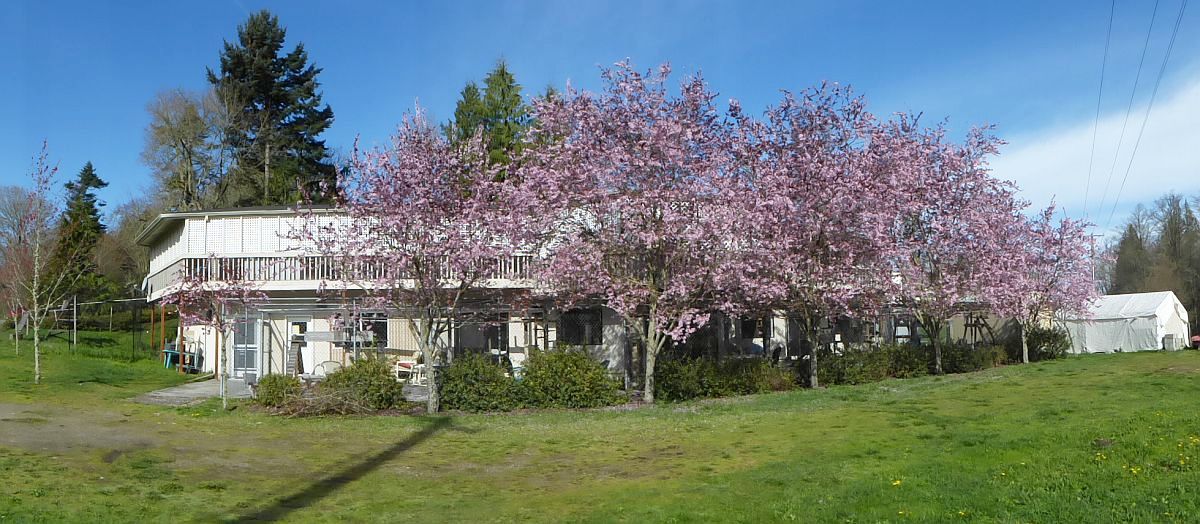

What else does Peninsula Friends of Animals do?
How can you be a “cageless” shelter with all those animals?


How do you pay for all this?
Do you need more volunteers?
Why don’t you have dogs at your shelter?

How do I become a member or volunteer my skills?
